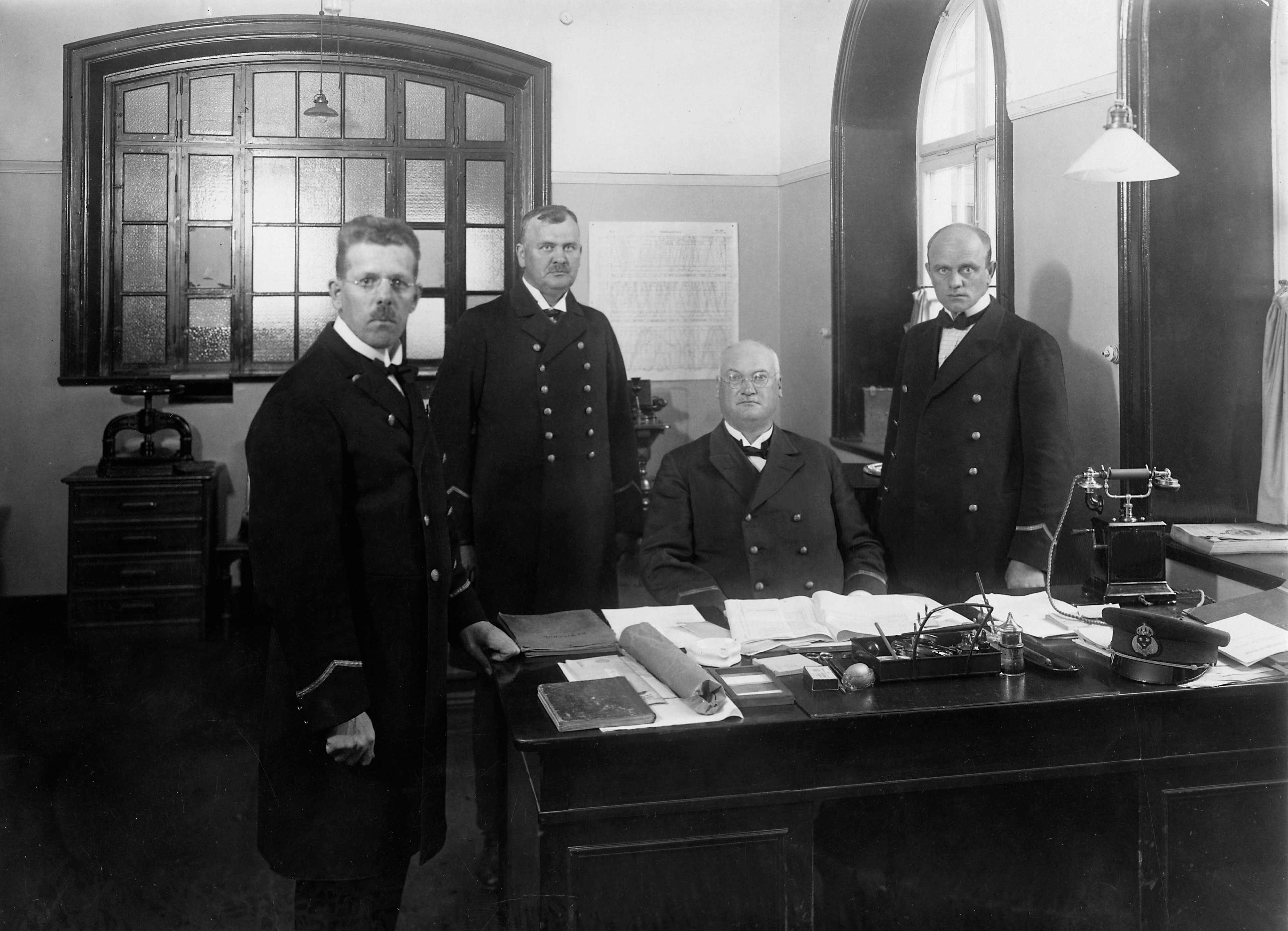
Station clerk
The station clerk served at the railway station and, in the hierarchy, was under the highest officer of the railway station, the station master or assistant station master.

The station clerk served at the railway station and, in the hierarchy, was under the highest officer of the railway station, the station master or assistant station master.
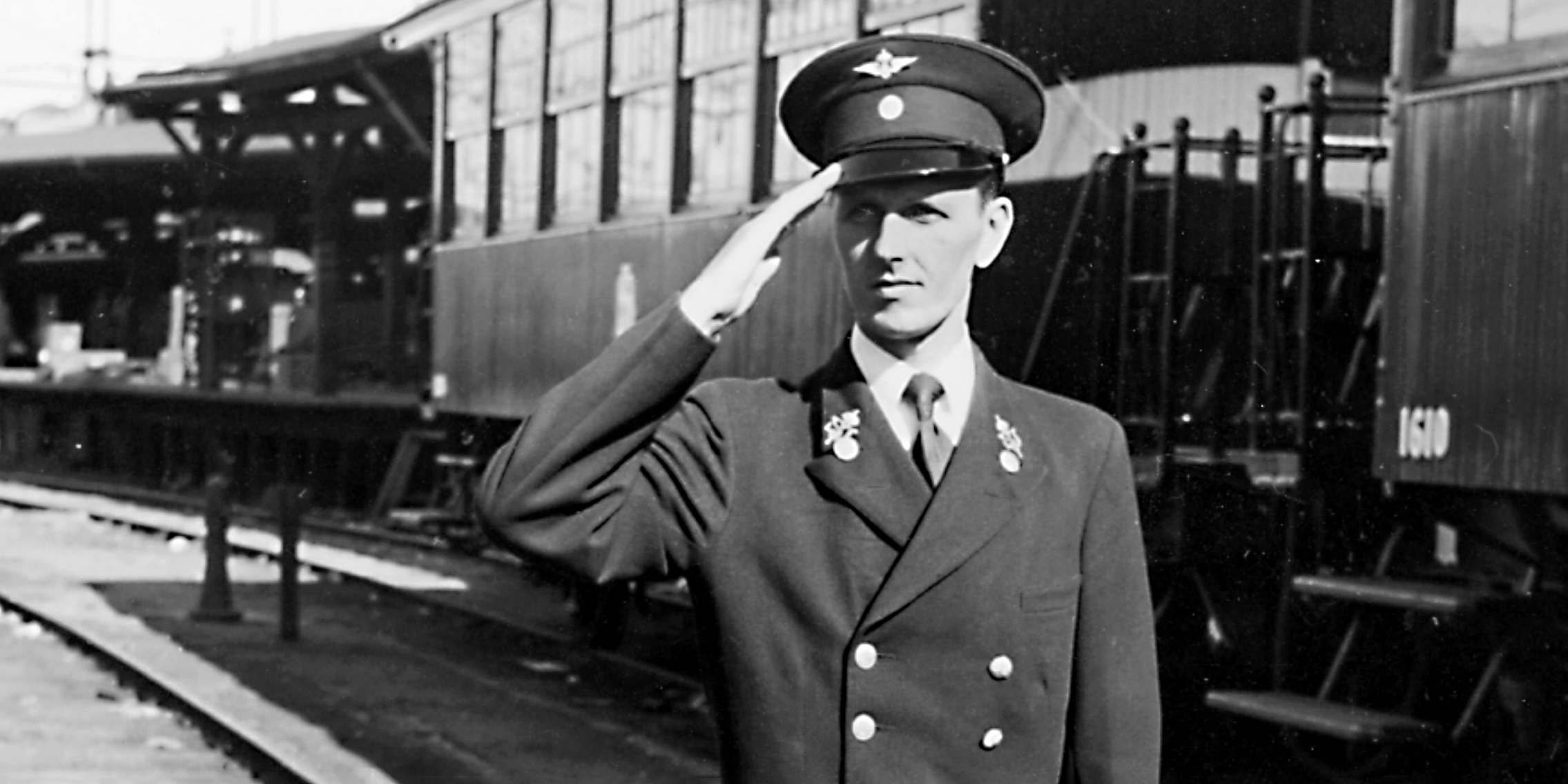
The station porter was a kind of jack-of-all-trades, employed by the traffic department. His immediate superiors were the station master and the head porter.
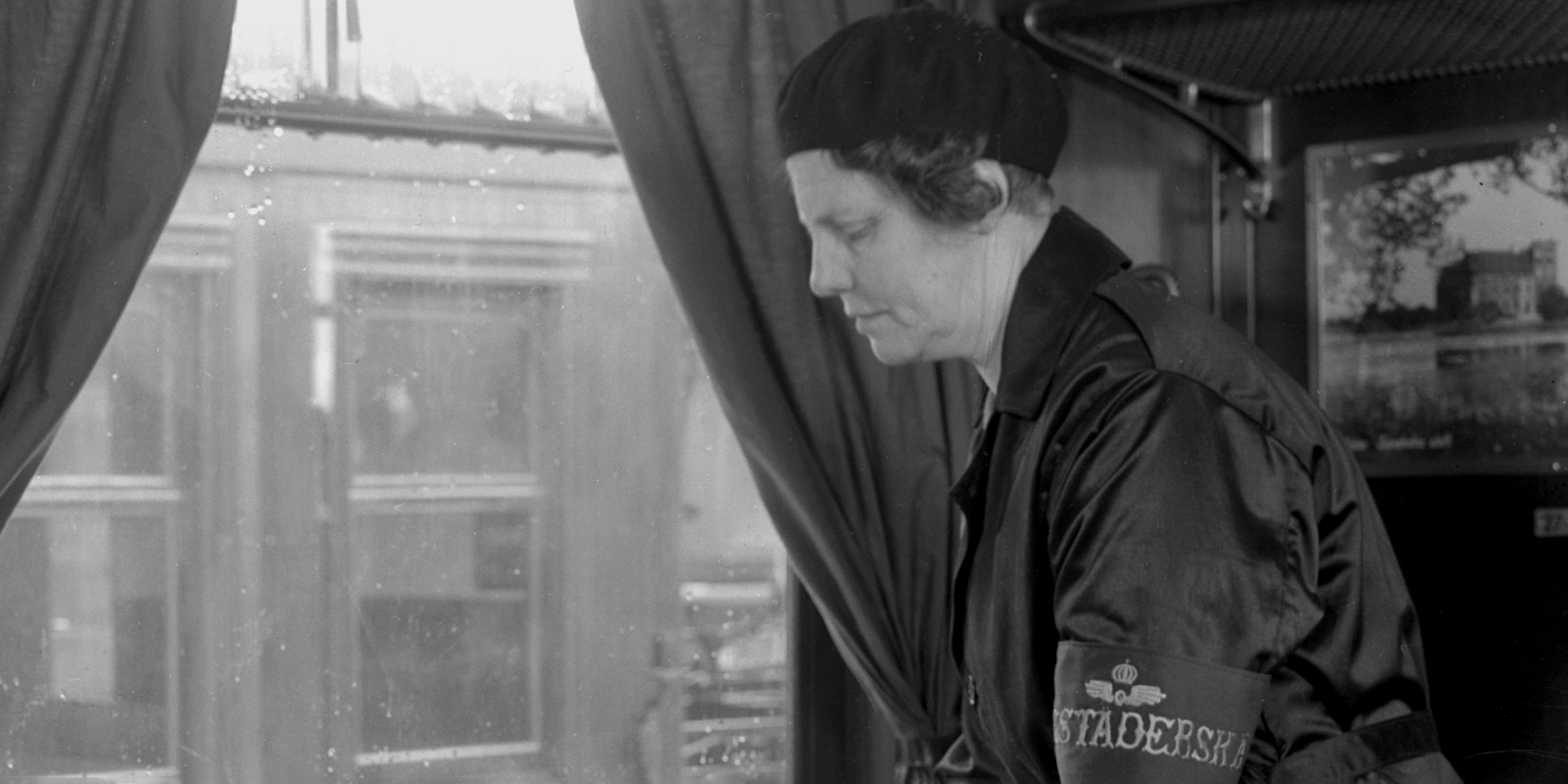
The train maid was an employee of the traffic department. Her immediate superior was the station master where she was stationed.
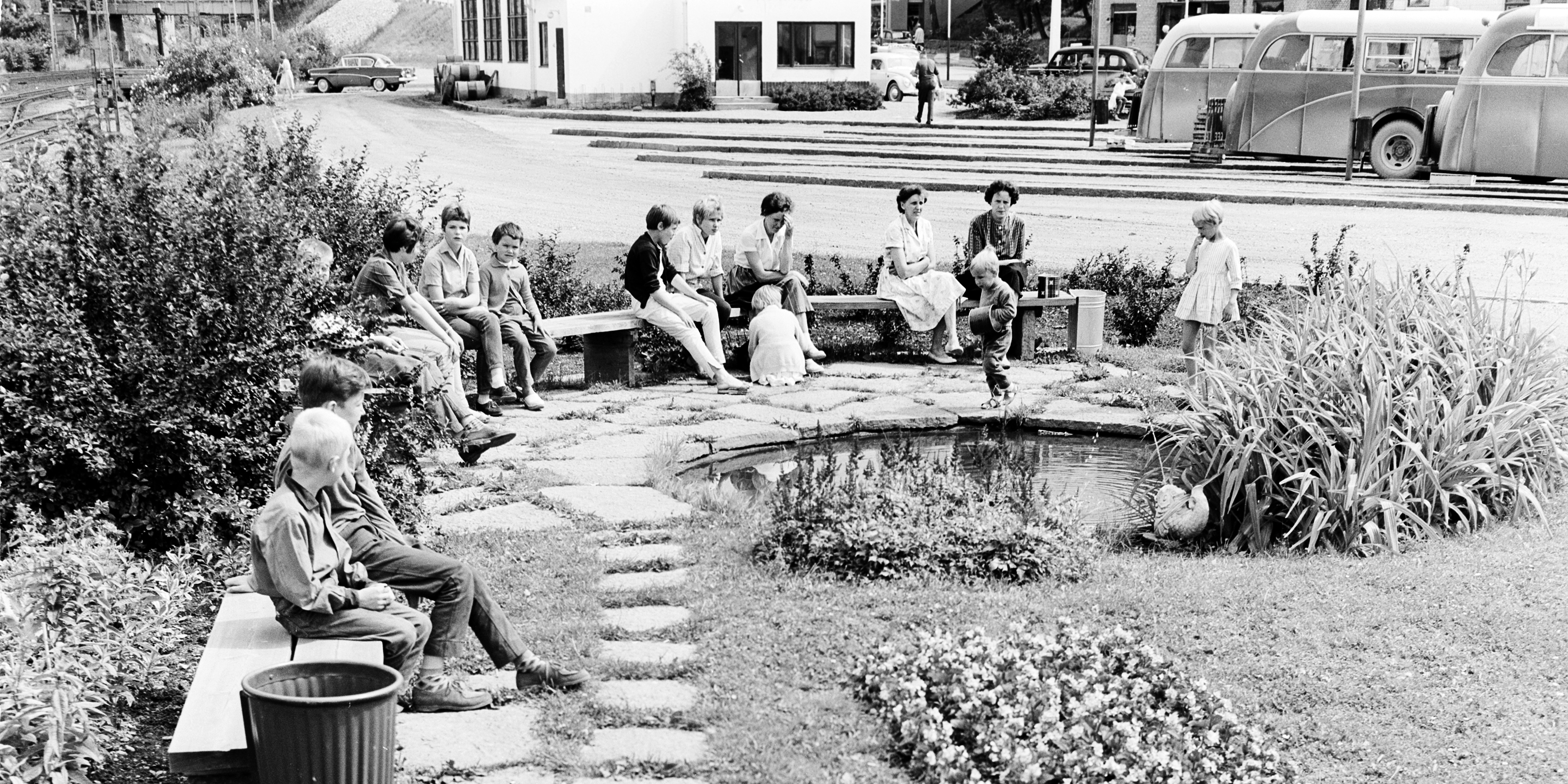
The landscape director was in charge of the planting work around the railway stations.
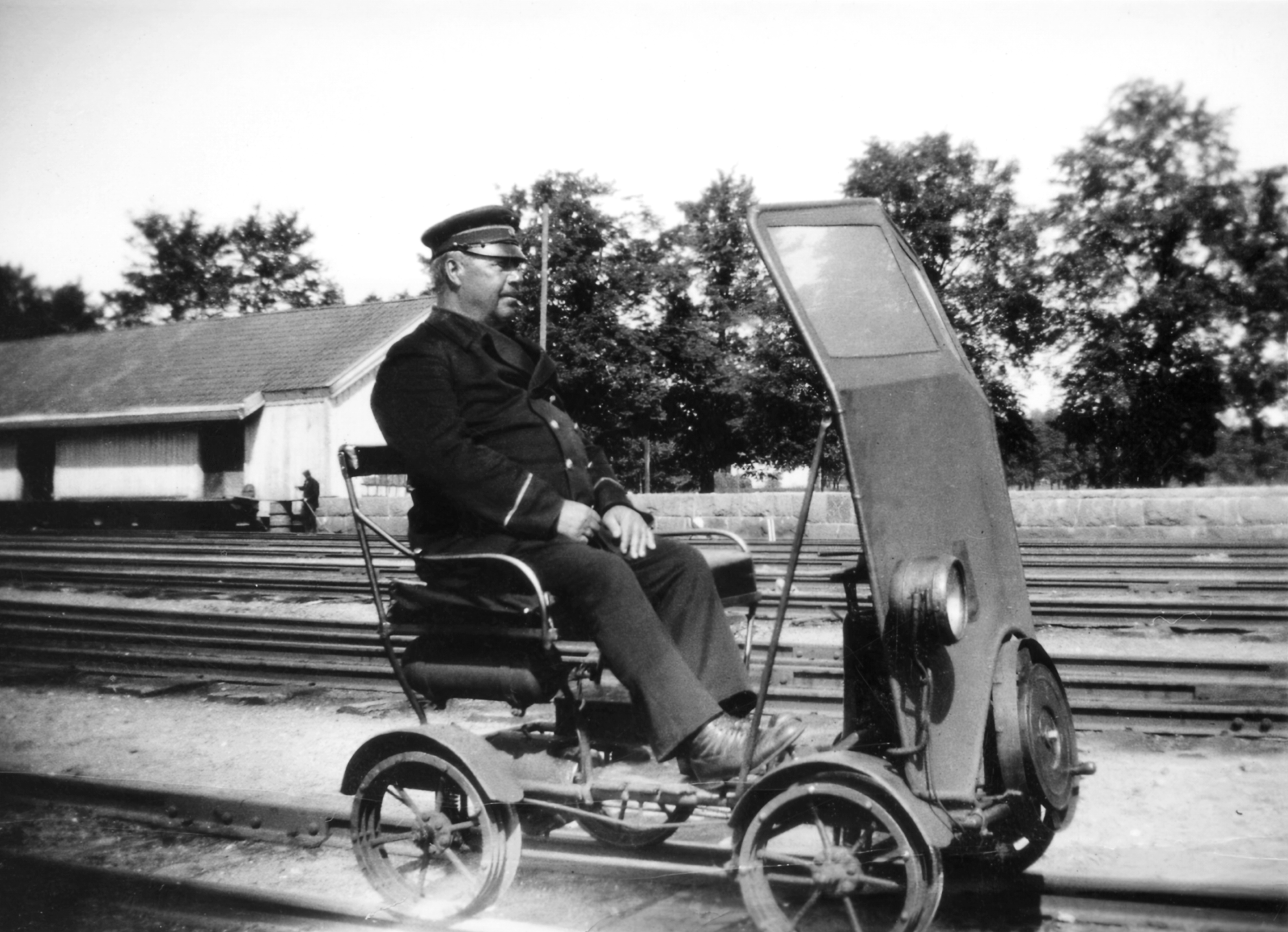
The line overseer’s main duty was to make sure that the track enabled trains to operate without risk of accidents.

Railway crossings, where roads crossed over the railway, used to be protected by special gates. These were tended by a gatekeeper.
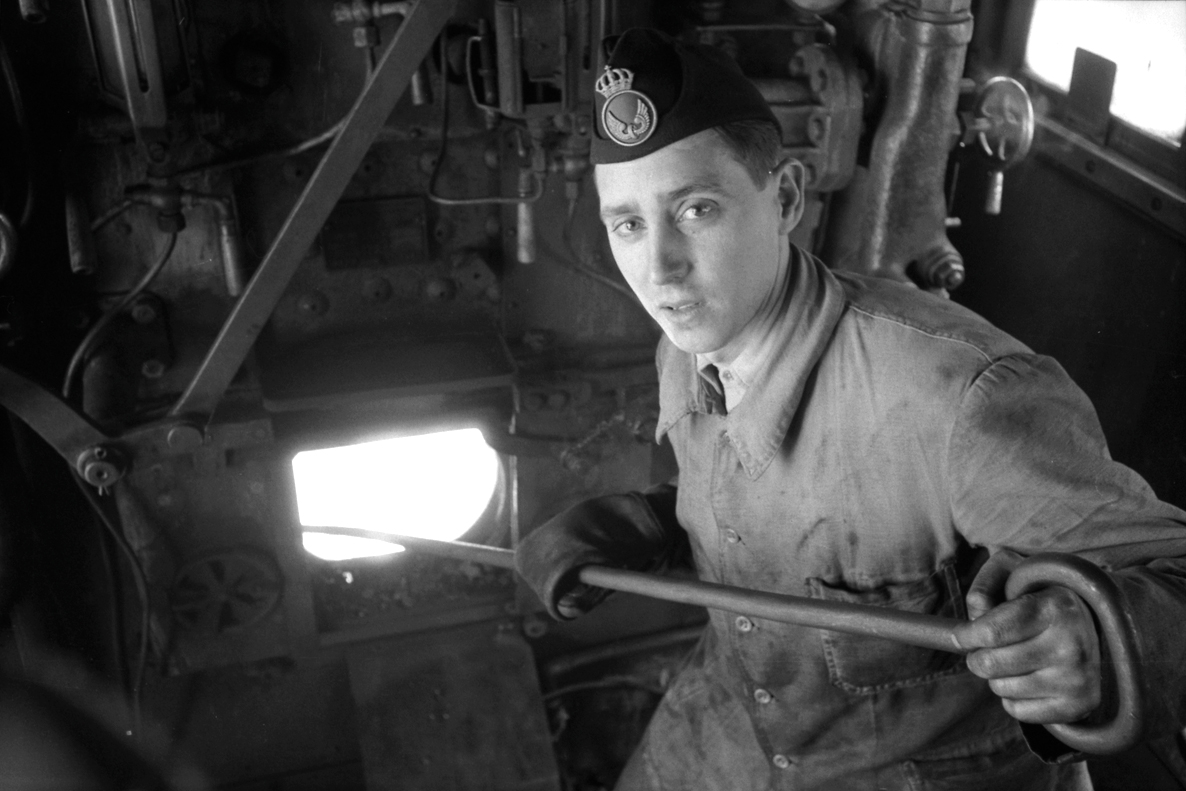
Tending the boiler, bringing in water, adding coal, cleaning, lubricating, and polishing lanterns – these were some of the duties of the fireman.
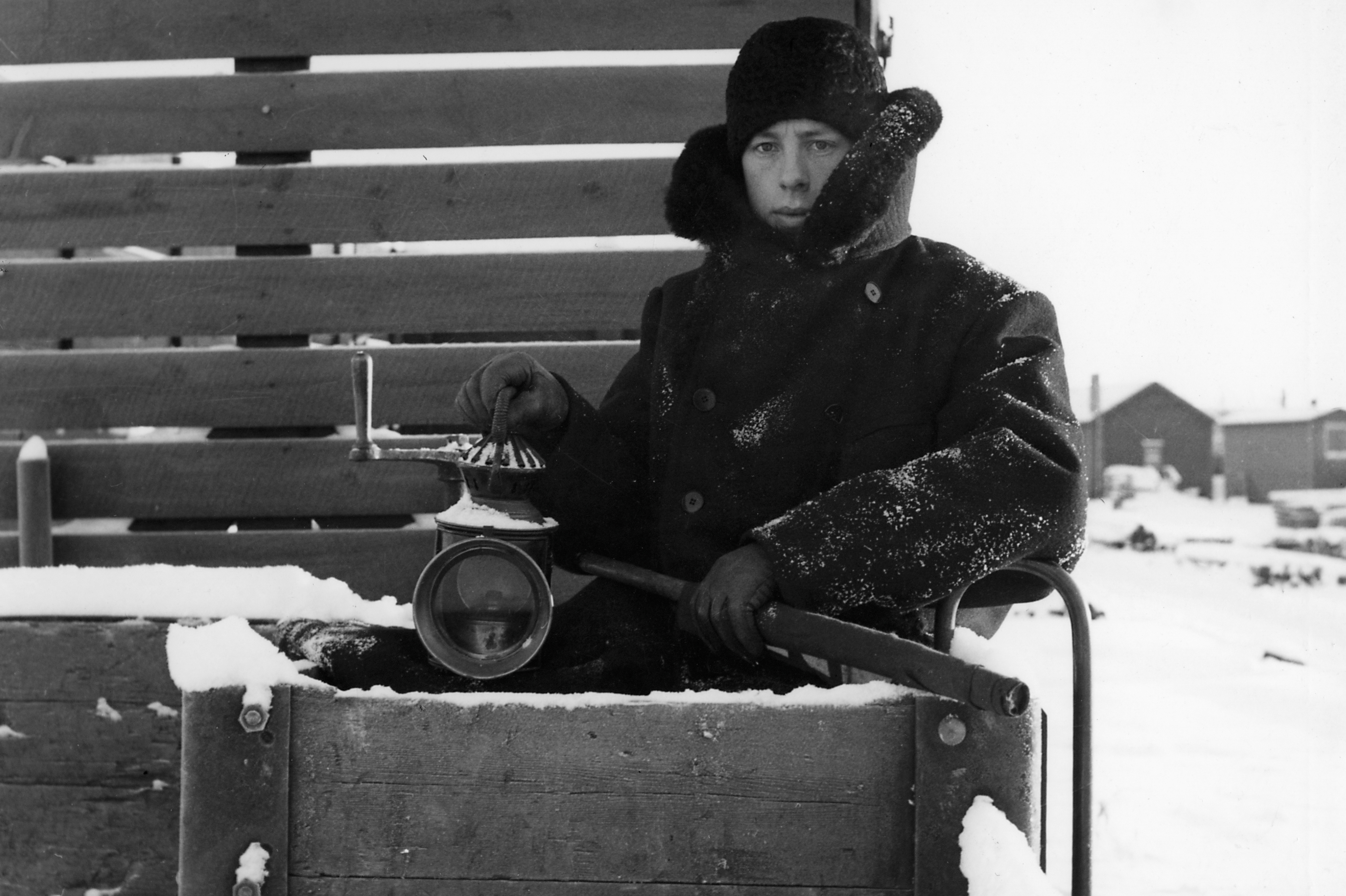
In the early days, locomotives and wagons/carriages were braked by means of screw brakes. The brakes in the wagons/carriages were operated by the brakeman, who would tighten or loosen the brake at the command of the train driver.
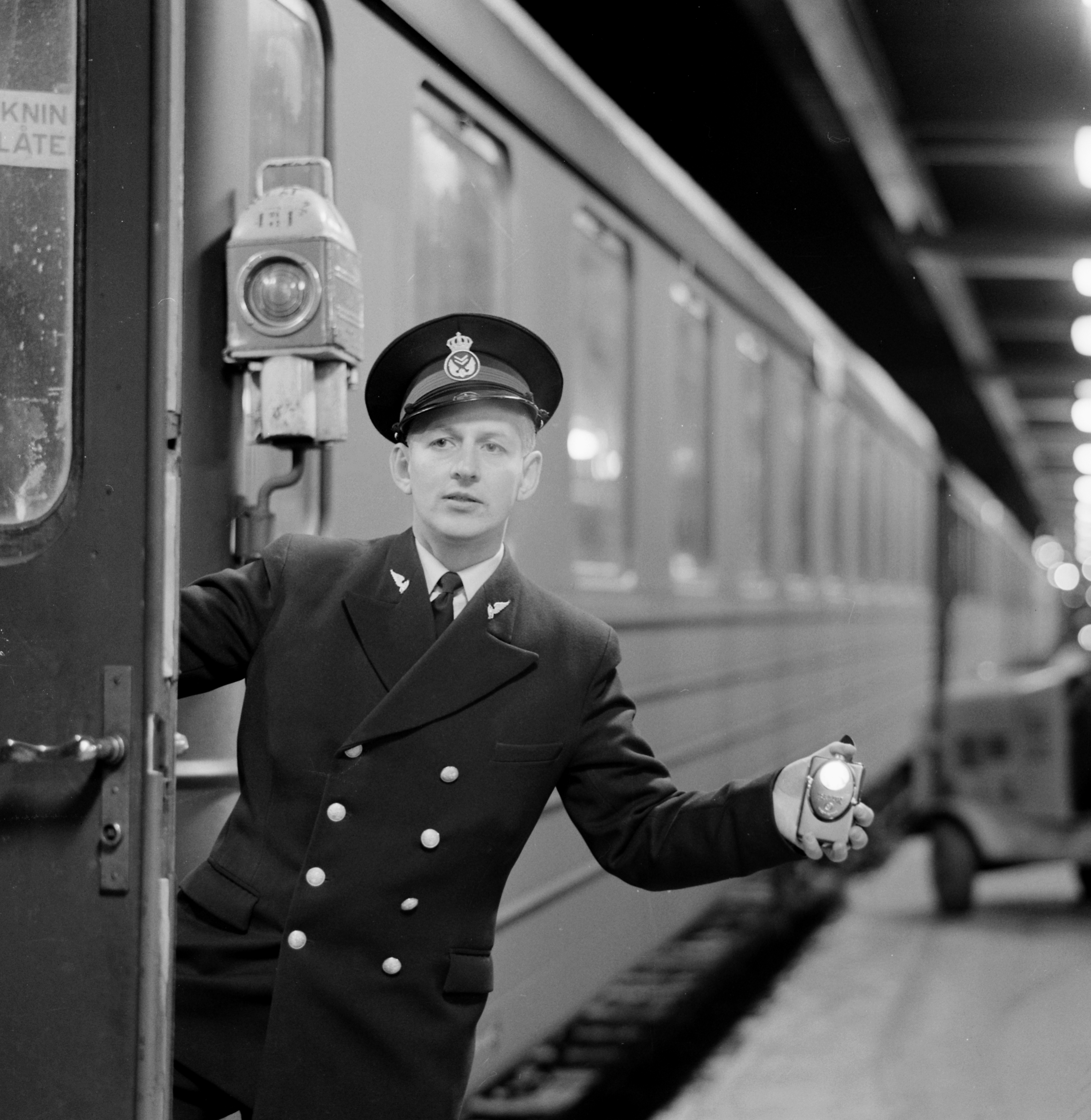
Does more than just check tickets. The conductor had many duties.
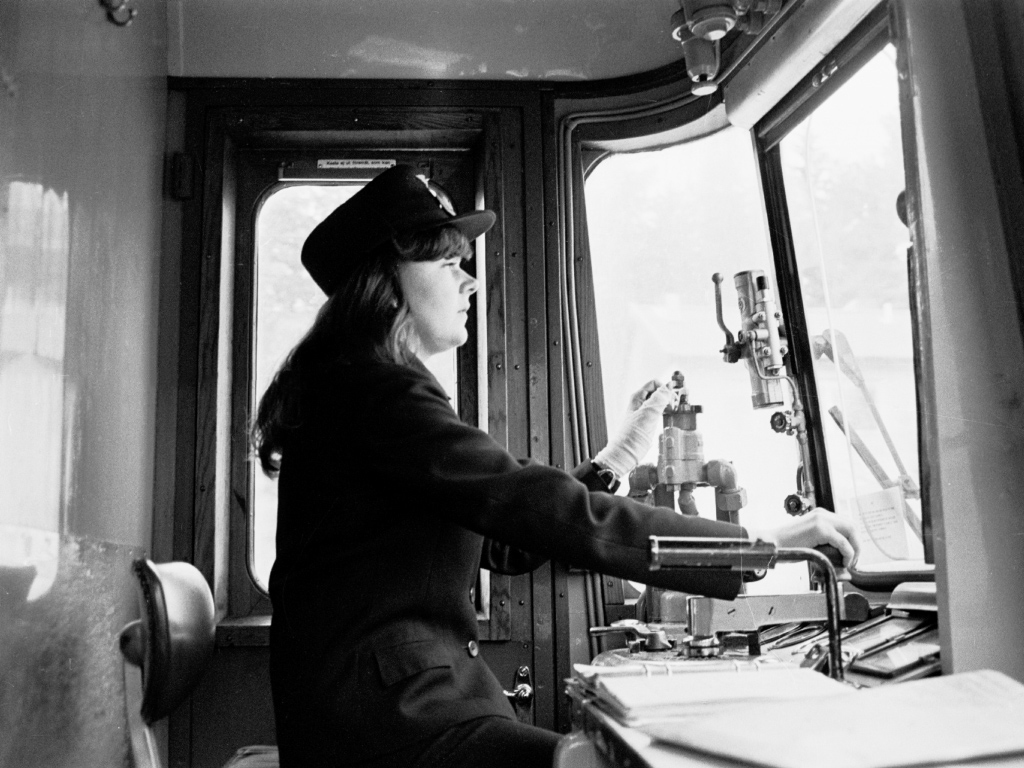
“The train driver should fully realise the importance and moral responsibility of his position, and that the lives of many others could be endangered any acts of negligence, incompetence or inattention on his part.”

The station master was the person in charge of the railway station. In simple terms, he was the station manager.
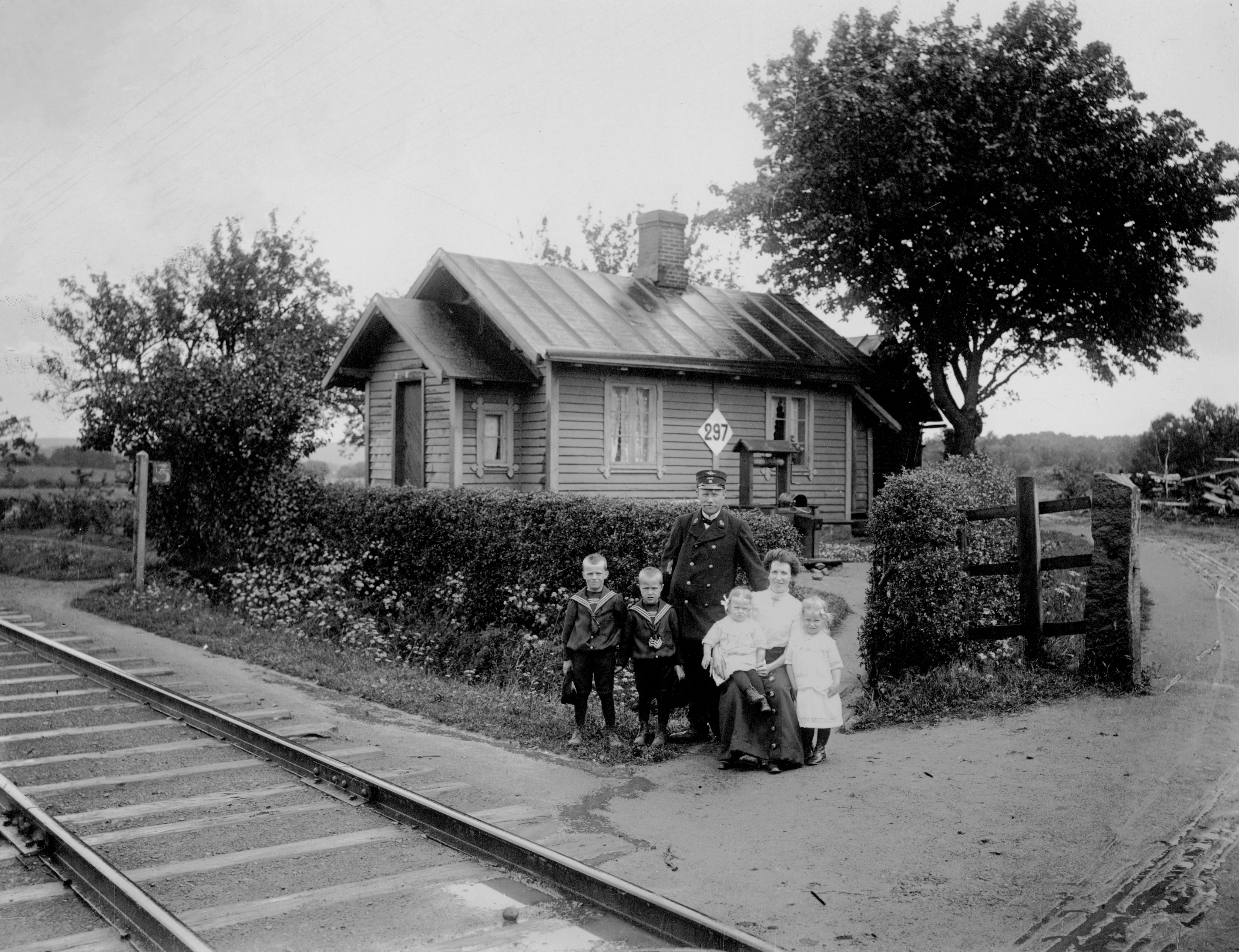
The lengthsman were responsible for ensuring that trains could safely travel along the track. When the railways came into use in Sweden, they needed to be maintained and monitored. Special staff were hired to do this, called lengthsman.